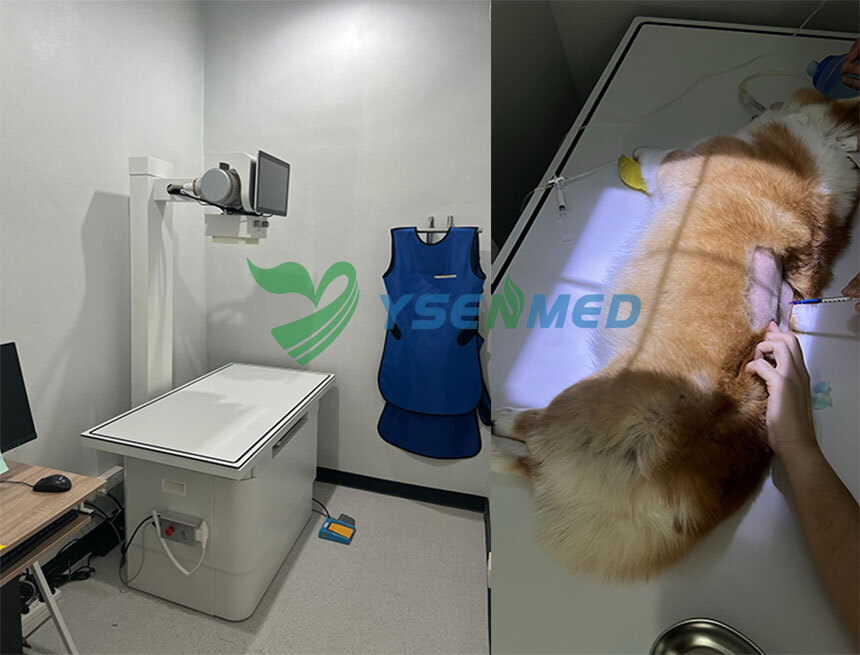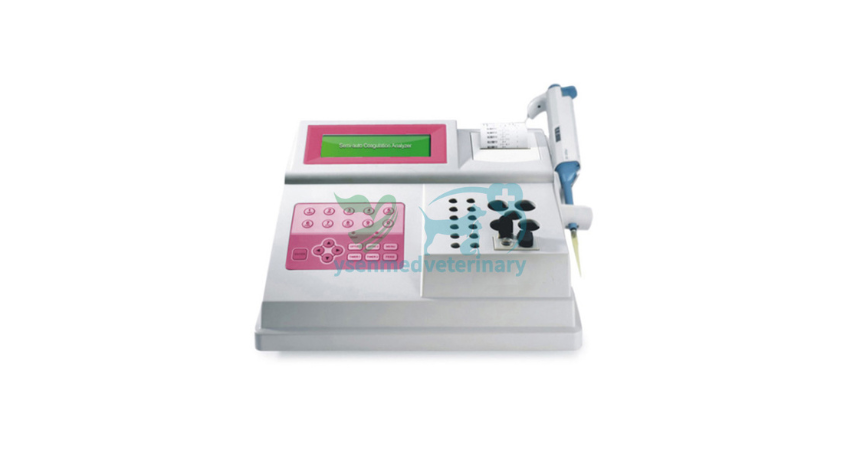Imagine a world where our furry friends couldn't tell us where it hurts. A world where diagnosing our beloved pets' ailments was like solving a puzzle without all the pieces. Fortunately, in the world of veterinary medicine, we have a silent hero - the animal ultrasound device. These remarkable gadgets are not only a vet clinic's best friend but also the key to unlocking the secrets hidden beneath the fur and feathers of our animal companions.
Now, let's embark on a journey to unravel the wonders of animal ultrasound devices and discover why they are such an indispensable tool in veterinary care.
The Evolution of Veterinary Care
Veterinary care has come a long way from the days of guesswork and instinct. In the past, diagnosing illnesses in animals often relied on visual examination and intuition. But today, thanks to advancements in technology, veterinary medicine has reached new heights.
What Is an Animal Ultrasound Device?
An animal ultrasound device, often referred to as a sonogram machine or ultrasound scanner, is a medical imaging tool designed for examining the internal structures of animals, much like how it's used for humans. It operates on the principle of sound waves. These devices are non-invasive and emit high-frequency sound waves that bounce off internal tissues, creating images that allow veterinarians to see what's happening inside the body.
How Does It Work?
The workings of an animal ultrasound device are akin to a bat navigating through the dark using echolocation. The device emits sound waves that bounce off the organs and tissues inside the animal's body. By analyzing the returning echoes, the device creates real-time images on a screen, revealing the intricate details of the animal's internal structures.
Benefits of Using Animal Ultrasound Devices
Unraveling Mysteries
These devices are like magic wands for veterinarians, helping them uncover hidden mysteries within an animal's body. Whether it's identifying the cause of abdominal pain or confirming a pregnancy, ultrasound devices provide invaluable insights.
Non-Invasive and Painless
Unlike some diagnostic procedures that may cause discomfort to animals, ultrasound scans are non-invasive and painless. No needles, no incisions—just a small probe gliding gently over the skin.
Real-Time Diagnosis
One of the most significant advantages of ultrasound is its ability to provide real-time images. This means veterinarians can see what's happening inside an animal's body as they perform the scan, making it easier to pinpoint issues quickly.
Versatile Applications
Animal ultrasound devices are incredibly versatile and can be used on various species, from dogs and cats to horses, cows, and even exotic animals like reptiles and birds.
Applications in Veterinary Medicine
The applications of animal ultrasound devices in veterinary medicine are extensive, making them an essential tool in every vet clinic.
Pregnancy Diagnosis
Determining if an animal is pregnant is crucial, especially for breeding programs and prenatal care. Ultrasound scans can detect developing embryos as early as 21 days after conception in dogs and cats.
Detecting Abnormalities
Ultrasound helps veterinarians detect abnormalities such as tumors, cysts, or foreign objects in an animal's body. This early detection can be life-saving.
Cardiac Health Assessment
Assessing cardiac health is another critical aspect of veterinary care. Ultrasound allows veterinarians to visualize the heart's structure and function, aiding in the diagnosis of heart diseases.
Guiding Procedures
During surgeries or other medical procedures, ultrasound can guide veterinarians in real-time. It ensures precision and minimizes the risk of complications.
Choosing the Right Device
Selecting the right animal ultrasound device is essential for accurate diagnostics. Factors like the clinic's size, budget, and intended use must be considered. A reputable vendor can provide guidance in making this crucial decision.
Training and Expertise
While the device is essential, the expertise of the operator is equally vital. Proper training ensures that the ultrasound device is used to its full potential, providing accurate and valuable information.
Challenges in Ultrasonography
Despite its many benefits, ultrasonography in veterinary medicine does pose some challenges. These can include limited availability in remote areas, the need for a cooperative patient, and the interpretation of images, which requires skill and experience.
A Glimpse into the Future
As technology advances, so too will the capabilities of animal ultrasound devices. We can expect even more precise imaging, increased portability, and wider applications in the years to come. The future of veterinary medicine looks brighter than ever.
Conclusion: Paws and Probes - A Lifesaving Partnership
In conclusion, animal ultrasound devices are a veterinarian's best friend and an animal's silent savior. With their ability to peer inside our beloved pets without causing harm, they have revolutionized the world of veterinary care. As these devices continue to evolve, our pets will benefit from even better and more precise diagnostics. So, the next time your furry friend needs medical attention, rest assured that the magic of animal ultrasound devices will be there to help.
FAQs about Animal Ultrasound Devices
What animals can benefit from ultrasound scans?
Animal ultrasound devices can benefit a wide range of animals, including dogs, cats, horses, cows, and exotic species like reptiles and birds. Essentially, any animal with internal structures that need examination can benefit from ultrasound scans.
Is ultrasound safe for pets?
Yes, ultrasound is safe for pets. It is a non-invasive and painless procedure that uses sound waves to create images. There are no known harmful side effects, making it a valuable tool in veterinary diagnostics.
Do all vet clinics have ultrasound devices?
Not all vet clinics have ultrasound devices, but they are becoming more common as the technology advances. Larger and specialized clinics are more likely to have these devices, but it's essential to inquire about their availability if you believe your pet may benefit from an ultrasound scan.
Can ultrasound detect cancer in animals?
Yes, ultrasound can detect cancer in animals. It is often used to identify tumors and assess their size and location. Early detection through ultrasound can be crucial in treating cancer in pets.




